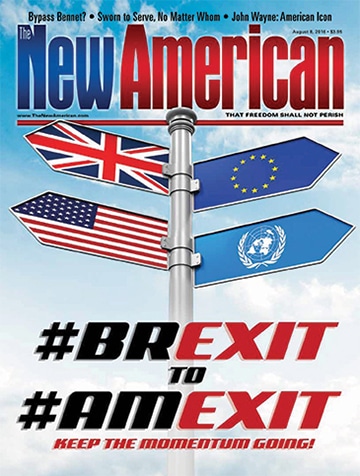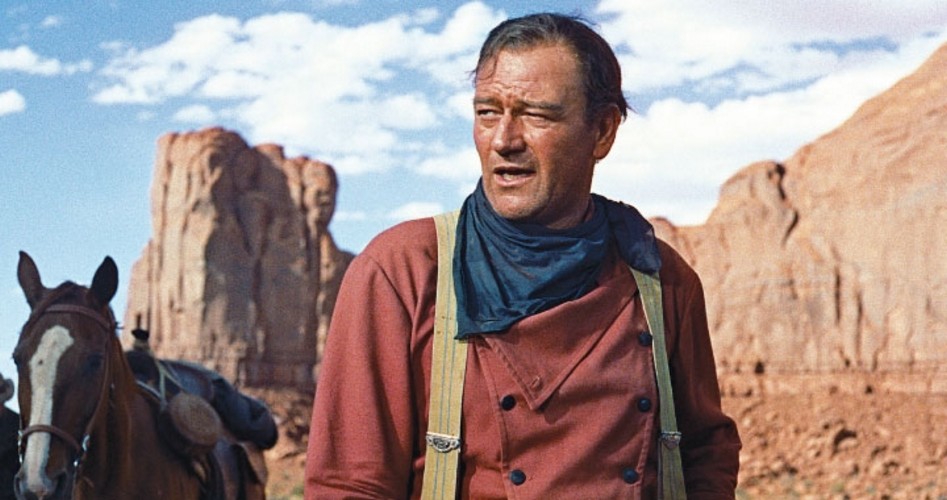John Wayne: American Icon
For nearly five decades, John Wayne roped, wrangled, and punched his way through hundreds of films and into our collective memories. His image symbolized the rugged individualism that characterized an idealized America — an America rooted in liberty and the notion that one controls his own destiny. Wayne’s characters reflected values he aspired to, but did not always achieve, and he once remarked that he played only the type of man he would like to have been. Strengthened by a respect for the nation’s past and its cherished traditions, Wayne seemed almost archaic in a rapidly changing world. It was that sense of strength that drew successive generations to him. He reminded us of the things that made America great, and we admired him for it.
Wayne’s folkloric stature in America, while still intact in many corners, has taken a hit in the last 40 years. Recently, a California legislative resolution to establish a statewide “John Wayne Day” failed to pass — falling six votes short in the 80-member assembly. The resolution praised Wayne as the “prototypical American hero, symbolizing such traits as self-reliance, grace under pressure and patriotism.” Those legislators who voted against the measure cited a 1974 Playboy magazine interview in which Wayne made intemperate remarks about black and indigenous Americans. Such retrospective moral condemnation, however, has never prevented the progressive Left from glorifying public figures such as the eugenicist Margaret Sanger and the environmentalist John Muir, who at one time or another publicly held controversial ideas about race. It’s more likely that Wayne’s outdated masculinity and his identification with an American past that has fallen out of favor were the cause of the resolution’s defeat. In any case, it is emblematic of the cultural shift that devalues what was once held in high regard, and elevates that which was once reviled.
Early Life
Born in Winterset, Iowa, on May 26, 1907, Wayne was christened Marion Robert Morrison. He would not receive his familiar public name until many years later. His father, Clyde, worked as a pharmacist’s clerk. His mother Mary (Brown) Morrison was said to be a strict, unyielding person. Wayne never warmed to his mother and always preferred the company of his father. His early life was punctuated by frequent relocations and instability. Clyde Morrison endured several business failures in Iowa, and by 1914, the Morrison family relocated to Palmdale, California. After an abortive attempt at farming, Clyde moved the family once again, this time settling in Glendale, California, where he secured a position at the Glendale Pharmacy.
JBS Member or ShopJBS.org Customer?
Sign in with your ShopJBS.org account username and password or use that login to subscribe.

 Subscribe Now
Subscribe Now
- 24 Issues Per Year
- Digital Edition Access
- Exclusive Subscriber Content
- Audio provided for all articles
- Unlimited access to past issues
- Cancel anytime.
- Renews automatically

 Subscribe Now
Subscribe Now
- 24 Issues Per Year
- Print edition delivery (USA)
*Available Outside USA - Digital Edition Access
- Exclusive Subscriber Content
- Audio provided for all articles
- Unlimited access to past issues
- Cancel anytime.
- Renews automatically


